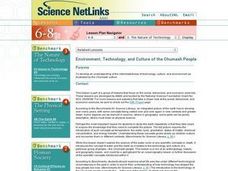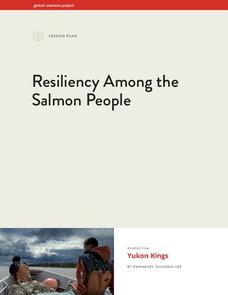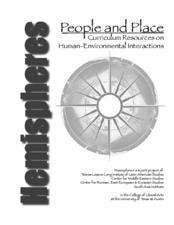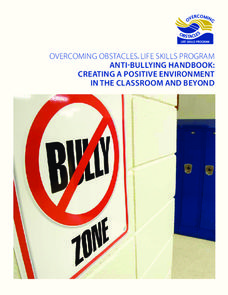Clean Up Australia
Why are Batteries Harmful to the Environment?
Open this lesson by reading together about primary and secondary batteries (such as nickel-cadmium cells), problems they can cause in the environment, and how humans can minimize the damage. Afterward, little ones examine a collection of...
National Museum of the American Indian
The Kwakwaka'Wakw: A Study of a North Pacific Coast People and the Potlatch
Discover the cultural practices and unique value systems of a group of native peoples from Canada called the Kwakwaka'wakw. Your young historians will discuss how conceptions of wealth can vary and how these native people utilized...
Curated OER
Indigenous Peoples’ Day Lesson Plan
Indigenous Land Guardianship, Settler Colonialism, Racial Capitalism. While the terms may be new to some, they feature in a lesson plan designed for Indigenous Peoples' Day. Young scholars investigate four concepts: Land...
Cornell University
Fibers, Dyes, and the Environment
Nanofibers can be made through electrospinning or force spinning in order to reduce the negative impact on the environment. Pupils study the role of fibers and dye on the environment through a series of five hands-on activities. Then,...
Curated OER
Environment, Technology, and Culture of the Chumash People
Students develop an understanding of the interrelatedness of technology, culture, and environment as illustrated by the Chumash culture. They research the tribe and complete a table for the Chumash people describing their environment,...
Curated OER
Writing Exercises: Early Peoples
Human prehistory is an exciting topic for many learners! Engage your social studies class in critical thinking by having them answer the three short essay questions on this worksheet. They need to know why prehistoric people migrate, how...
EngageNY
Research Skills, Part 2: Natural Resource Development and How It Modifies the Physical Environment
Name your source. Scholars receive research folders with articles of information about natural resources. They use the sources to conduct research to answer questions about how Canada's environment meets the needs of the people and how...
National Library of Medicine
Your Environment, Your Health: Chemicals in Your Home
Many people know about chemical pollution, but are all chemicals bad? The third unit in a series of six addresses chemicals common in everyday life. Scholars learn about the chemicals found in their own homes, chemical safety, and...
American Museum of Natural History
Ask a Scientist About Our Environment
Scientists respond to 26 question posed by learners. These experts answer in easy to understand language, include photos to illustrate the issue, offer suggestions for how young people can make a difference, and supply links to resources...
Curated OER
Cultural Environment
Students learn about a new culture. In this Native American environment lesson, students begin a unit on Native Americans where they learn about their homes and the environment they lived in. Students view pictures of Native American...
Global Oneness Project
Resiliency Among the Salmon People
Is losing cultural traditions the cost of social progress, or should people make stronger efforts to preserve these traditions? High schoolers watch a short film about the native Yup'ik people in Alaska and how they handle the shifts in...
Consortium for Ocean Science Exploration and Engagement (COSEE)
One Ocean: It Matters!
Here is the first of four poignant lessons on how humans and oceans interact, even if people live far from the coast. This particular lesson also examines studies that are taking place in Antarctica of how climate change is affecting the...
Purdue University
Food Waste and the Environment
Out of sight out of mind can be a dangerous habit. Learners investigate the life of food waste after it leaves people's homes and its impact on the environment. They complete a series of three activities that involve building a mini...
Curated OER
Ghostbusting in the Chesapeake
Ghost pots, fishing gear lost during crabbing expeditions, continue to trap crabs that are never collected. Increase your budding ecologists' awareness of human impact on the environment as well as conservation efforts using this...
Curated OER
Hemispheres: People and Place
Here is an astounding series of lessons, designed for high schoolers, on environmental policy. By studying water conservation in rural India, the role of the government, and the reaction of the people, learners begin to formulate...
Berkshire Museum
Reduce, Reuse, and Recycle: Sorting Through Personal Choices
Raise children's awareness about the importance of conservation with this hands-on science instructional activity. Start by breaking the class into groups and having them collect trash from around the school or local park. Students then...
Curated OER
Sticks, Stones, Sinews and Stuff: How Early People Used the Environment to Meet Basic Needs
Students create an artifact. In this early survival lesson, students use found objects to create an artifact that could have been used to help early people meet their basic needs.
Curated OER
Survival: The Human Body in Extreme Environments
Students name and describe the major systems that work together as a unity to monitor and regulate the human body as it goes about its business of securing the essential requirements for life. They identify specific human features and/or...
Overcoming Obstacles
Anti-Bullying Handbook: Creating a Positive Environment in the Classroom and Beyond
A hot-button topic in schools today is bullying, and although there is heightened awareness of this problem, information about specific steps schools can take to combat the problem and create a positive environment is difficult to find....
Curated OER
People and the Environment
In this environment worksheet, students look at how different human actions can cause pollution and how the pollution effects the environment. This worksheet has 6 short answer questions.
Roy Rosenzweig Center for History and New Media
American Indians and their Environment
People could take a page in ingenuity and survival from the Powhatans. Deer skins became clothes, and the members of the Native American group farmed the rich Virginia soil and hunted in its forests for food. Using images of artifacts...
Curated OER
Cloudy with a Chance of Meatballs
Students explore the 5 themes of geography. In this cross curriculum literacy and geography instructional activity, students listen to Cloudy with a Chance of Meatballs by Judi Barrett, and make a list of the needs of the people in...
Pulitzer Center
Exploring Downstream: Water Resources
The lack of clean water is a life-threatening plight for millions of people around the world. Through an extensive WebQuest, young environment or social studies classes compare our water availability to that of the cxitizens of Ethiopia,...
Earth Day Network
Healthy Earth, Sick Earth
Earth is sick and needs our help! Read the children's book Planet Earth Gets Well to explain the various problems facing the planet, discussing what young conservationists can do to heal the planet along the way. A great Earth Day...

























